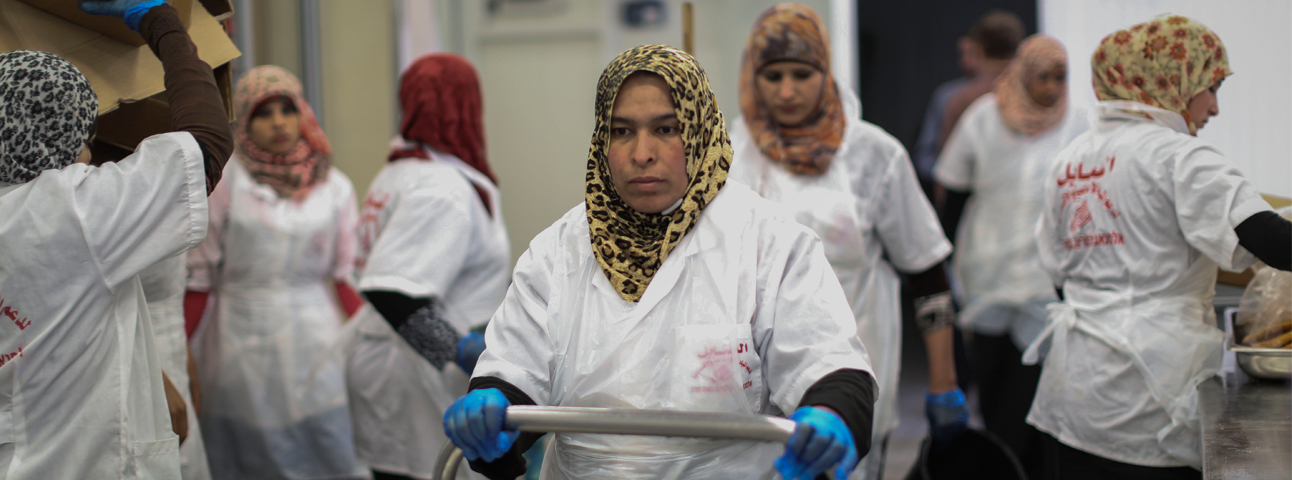Arab Israeli Women Joining the Labor Force in Large Numbers
Are these encouraging numbers the harbinger for positive change in Israeli society?

Illustration | Flash 90
Economists agree that there are two groups who are under-represented in the Israeli labor force and are dragging down the economy, namely Arab women and ultra-Orthodox men. In both cases there are educational, cultural and systemic barriers to their employment. The Israeli government is working hard to make the changes that will encourage more women to join the labor force.
A decade ago, only about 22% of Arab women were working outside the home. Today over 40% of them are part of the labor force.
“The major reason is the increase in the educational level of Arab women and internal changes within Arab society,” says Aiman Saif, director of the Authority for the Economic Development of the Minorities Sector and Senior Advisor at Portland Trust, in an interview. “There are more workplaces and more opportunities for women – therefore we see an increase.”
One of the primary obstacles to more women entering the labor market is lack of education. Nasreen Hadad Haj Yahya, director of the Arab-Jewish Relations Program at the Israel Democracy Institute and Project Manager at Portland Trust, said that there are significant educational and funding gaps between the Arab and Jewish school systems.
“Over 50% of Arab families live under the poverty line – so if you don’t have the tools, and if your family doesn’t invest in your education, you have less of a chance to be integrated into the work force,” she said. Her research shows that among young Arab women ages 18–22, almost half are neither working nor studying. “We must change this,” she said. “It’s easier to deal with the problem before they have children, and we must capitalize on this time to give them tools to integrate into higher education and the work force.”
If these younger women are not able to enter the work force or go to university, they will marry young and have children. Once that happens, she said, it is more difficult to get women to leave their homes and go to work.
When it comes to higher education, she said, progress has been made. Arab citizens make up about 17% of the total number of university students in Israel, close to their 20% representation in the population. Of the Arab students, 70% are women, showing that families realize the importance of education for their daughters’ future.
“I see young Arab women taking over the universities,” Haj Yahya said. “Families want their daughters to have a higher education and to work at high-level jobs. In my research, most of the families and the husbands do not want to see their wives at home. People understand that women who venture out of the villages or towns will raise their kids differently. If we want to deal with poverty in Arab society, the man can’t be the only breadwinner.”
The very day we met in Tel Aviv, Haj Yahya had submitted her PhD thesis for approval.
Some of the barriers to increasing women’s employment are rooted in structural problems, said Aiman Saif.
“Arab society is located in the periphery of Israel, in the North and the South. It doesn’t matter if you are Jewish or Arab – the employment opportunities in these areas are limited. We don’t have enough industrial zones on the periphery of Israel or in Arab villages and towns. There are a lot of Arab women who would be willing to be part of the labor market if we create an inclusive environment.”
Most Arab towns and villages had no public transportation until 2010, meaning it was impossible to commute to work without a car. In addition, there are not enough day care facilities in the Arab sector.
The government is responding to these issues by first building industrial zones in large Arab towns like Nazareth that can offer employment close to many Arab villages. There are also 22 employment centers for Arab women – one that is even inside a mosque – to match women to available jobs.
The government has set a target of 54% Arab women’s employment by 2030.
Both Haj Yahya and Saif believe that increasing women’s employment is not only vital for the Israeli economy, but can contribute to shared society. A recent study found that 50% of Jews believe their fellow Arab citizens are enemies who want to destroy the State of Israel. At the same time, 90% of employees in a shared workplace, said they had a good relationship with their counterparts.
“When people get to know each other, they understand that we are human beings that want to live here in a respectful way,” Haj Yahya said. “It changes the way the majority treats the minority in Israel.”
The article appeared in the Jerusalem Post.
